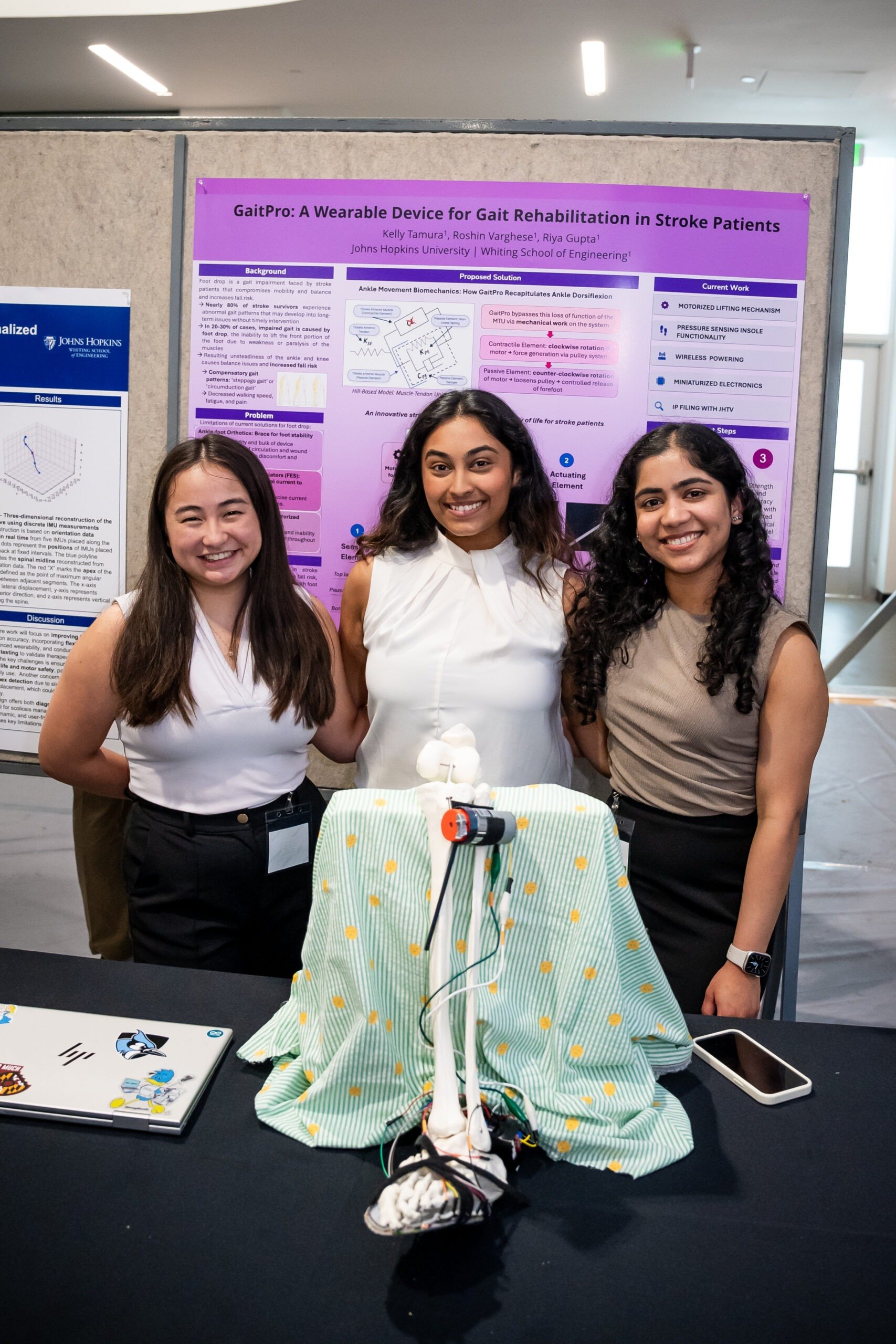Most stroke survivors experience walking issues in the first few months of recovery, increasing their risk of falling and potentially leading to permanent disability without the right intervention. To help these patients regain a more natural walking pattern, Johns Hopkins biomedical engineering master’s students Riya Gupta, Kelly Tamura, and Roshin Varghese have created a boot-like wearable device as their final project in the Department of Biomedical Engineering’s Honors Instrumentation course.
Called GaitPro, the device fits over the lower leg and foot to adaptively correct post-stroke foot drop, a condition that makes it difficult to lift the front of the foot because of paralysis or muscle weakness. Flexible, smart insoles inside the device detect pressure changes as the user steps, triggering a motorized mechanism below the knee that lifts the foot in real time to mimic a healthy gait.
“Existing solutions for foot drop are either rigid braces that don’t adapt to movement or complex systems that are too bulky for everyday use,” said Gupta. “Designed with a sleek pressure-sensing insole, our low-cost and compact gait correction device detects variations in pressure throughout the gait cycle to dynamically provide support as needed, enhancing the quality of life for individuals as they recover from stroke.”
One of the team’s main challenges was to design a practical, comfortable, wearable device that a patient can use every day to help ensure a full recovery.

